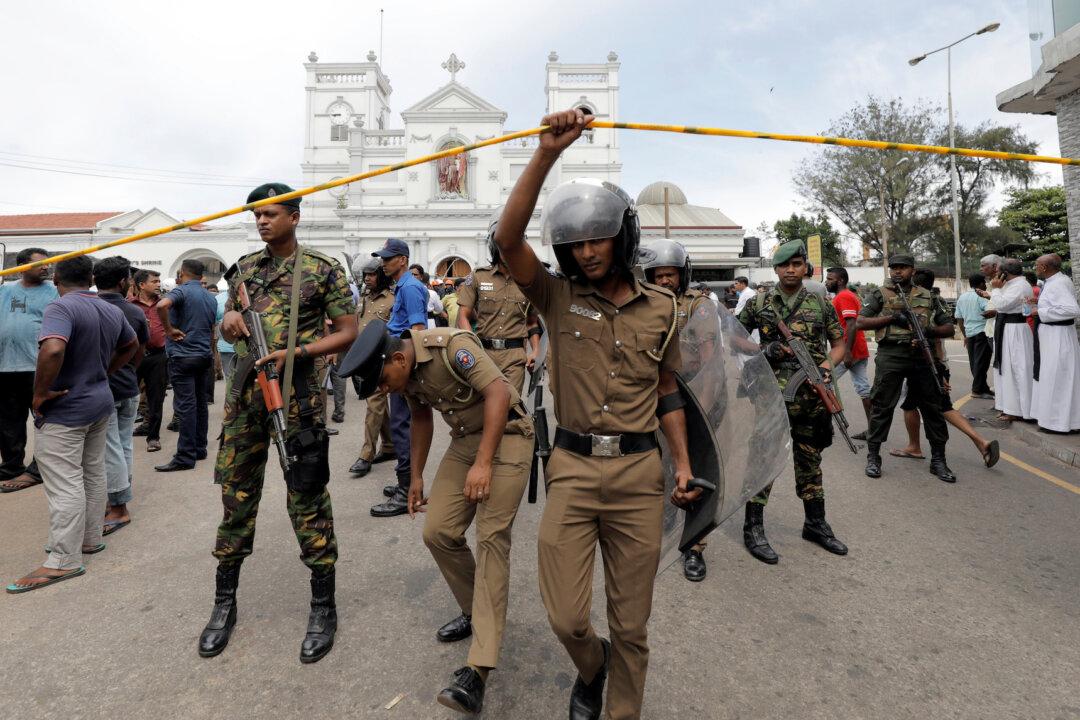The Easter Sunday bombings in Sri Lanka were an act of revenge for a recent attack on mosques in New Zealand, according to the country’s state minister of defense.
“The preliminary investigations have revealed that what happened in Sri Lanka (on Sunday) was in retaliation for the attack against Muslims in Christchurch,” Ruwan Wijewardene told Parliament on April 23, according to Reuters.





